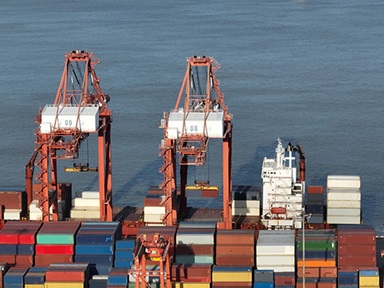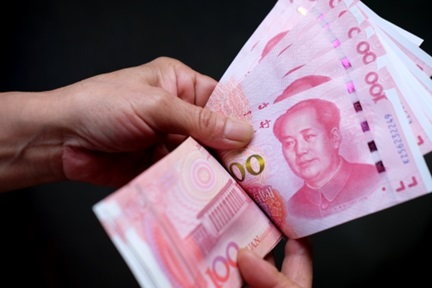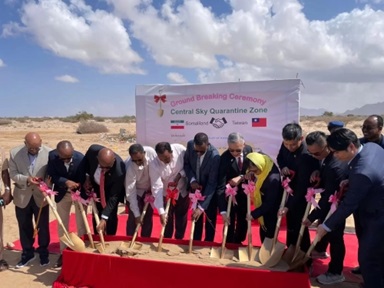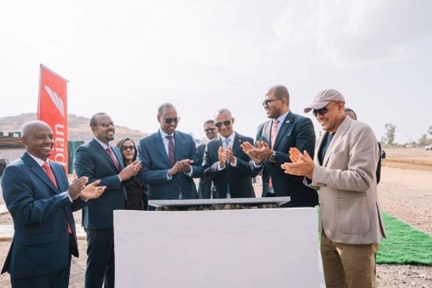Scandinavian tech founders launch growth fund for Africa
The US$200m Norrsken22 fund will look for potential unicorns in the continent

A group of Swedish technology executives led by Niklas Adalberth, co-founder of the Stockholm-based ecommerce platform Klarna, have come together to set up a US$200m investment fund with the aim of funding Africa’s next ‘Unicorn’ – a label commonly used to describe a start-up whose market value hits US$1bn. The Norrsken22 fund, set up by the eponymously named non-profit foundation will exclusively invest in growth-stage technology start-ups in Africa.
The move comes soon after Nigerian fintech platform Flutterwave hit a valuation US$3bn barely 12 months after achieving unicorn status in 2021. The fund includes Olugbenga Agboola – the founder of Flutterwave – along with 28 other founders and developers of well-known online games and services such as Skype, Delivery Hero, and Candy Crush. The founders have collectively put US$65m into the new fund, which will have offices in Cape Town, Johannesburg, Lagos and Nairobi. It has set itself the ambitious target of raising US$ 2bn and has invited major venture capital firms such as Sequoia Capital and Northzone to invest.
It has an advisory team with extensive experience in Africa. This includes the chair of Johannesburg Stock Exchange, Nonkululeko Nyembezi; former chief executive of Ecobank, Arnold Ekpe; and former CEO of MTN, Phuthuma Nhleko. It has also secured the appointment of experienced private equity professionals to manage its portfolio. Norrsken’s new managing partner is Natalie Kolbe, the former global head of private equity at global private equity firm Actis. In addition to having extensive Africa experience, Kolbe has managed funds in high-growth markets such as India, China, and Southeast Asia.
Adalberth believes that the lack of access to growth capital is an impediment to African technology firms achieving global success. He may be on to something. African start-ups attracted a record US$5bn last year and saw the creation of five unicorns. But this is dwarfed by the US$165bn in venture capital investment received by their counterparts in Asia during this same period. There were more than 500 early-stage deals in Africa last year. Most, however, were valued at less than US$5m. This leaves a lot of room for growth capital.
Norrsken22 has indicated that it is already in discussions with its first potential investments and that it currently has at least 400 companies that it is potentially interested in. These are predominantly based in South Africa, Kenya, and Nigeria. The geographic focus is unsurprising, as these three countries have the most developed start-up ecosystems in Africa. The only promising African market not currently on its radar is Egypt.
The non-profit arm of the fund - Norrsken Foundation - opened a large start up hub in the Rwandan capital, Kigali. Norrsken House Kigali offers world-class infrastructure and access to networks. It will host a 1000 entrepreneurs by the end of this year and is the first of 25 hubs the foundation plans to open around the world.
The launch of the Norrsken22 fund underscores foreign investor interest in the African technology sector. The continent has the fastest population growth in the world and comparatively very young demographics. This is setting Africa up to be the most significant growth market in the coming decades. Furthermore, the lack of prior development and investment in the technology sector in the continent means that there is limited competition, making it a fertile ground for new entrants and high-growth domestic enterprises. The technology start-ups likely to receive the most interest from Norrsken22 are those operating in sectors with significant consumer activity. These include fintech, ecommerce, and business services; notably, all of Africa’s unicorns are in these three sectors.
This potential is also to do with the revolutionary impact that mobile phones have had on the continent. The introduction of mobile phones – and subsequently smartphones – has overcome the hurdles presented by the absence of other infrastructure. This has contributed to a significant uptake in internet adoption. Meanwhile, the relative lack of infrastructure and public sector services in Africa provides the opportunity for successful technological innovation. The best illustration of this is the widespread adoption of mobile money services across the continent, through which mobile operators are able to provide financial services to rural and unbanked segments of the population. The most well-known example of this is Safaricom’s M-Pesa platform.
To date, a lot of technological innovation has come from already established corporations like the major telecommunications networks. However, the increased interest of venture capitalist firms and investment funds like Norrsken22 marks a shift towards more extensive venture capital funding of start-ups, particularly those with a technology focus. The influx of venture capital firms will provide African entrepreneurs with alternative funding streams and ultimately reduce the cost of raising finance.
References:
‘Tech founders launch fund aimed at finding Africa’s next ‘unicorns’’, Financial Times, 30 January 2022
'Norrsken, VCs and 30 unicorn founders set up $200M fund to back growth-stage startups in Africa’, Tech Crunch, 31 January 2022
‘5 Out of 7 Tech Unicorns in Africa Come From Fintech’, Fintech Africa, 12 October 2021
‘Norrsken22 hires Actis’ global PE head for Africa impact fund, marks first close’, The Capital Quest, 31 January 2022
‘Global Venture Funding And Unicorn Creation In 2021 Shattered All Records’, Crunchbase, 5 January 2022
‘New forecast shows Africa's startup investment inflows could reach highest record of $5 billion in 2021’, Business Insider Africa, 9 December 2021
‘Tech founders launch fund aimed at finding Africa’s next ‘unicorns’, Financial Times, 31 January 2022







